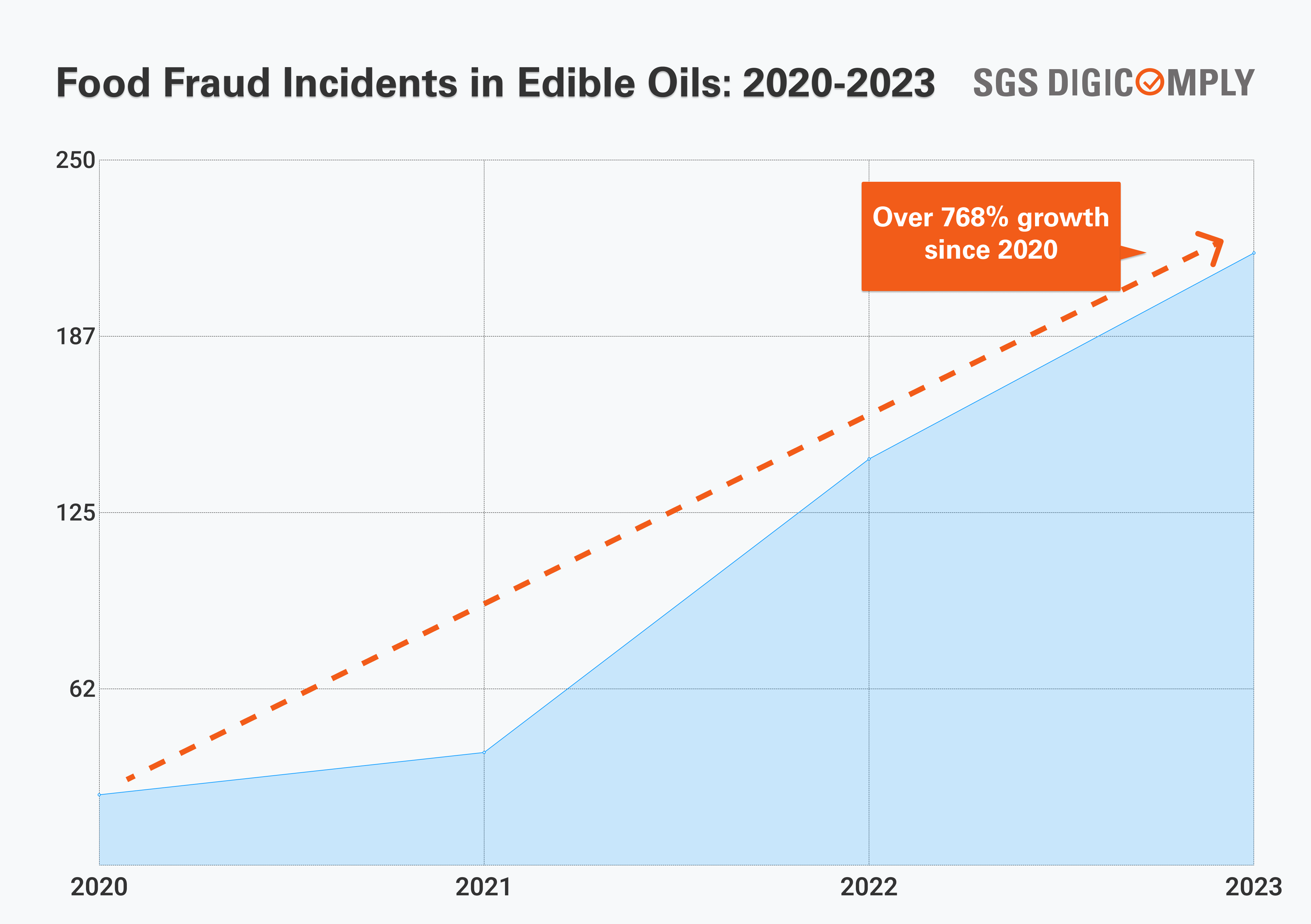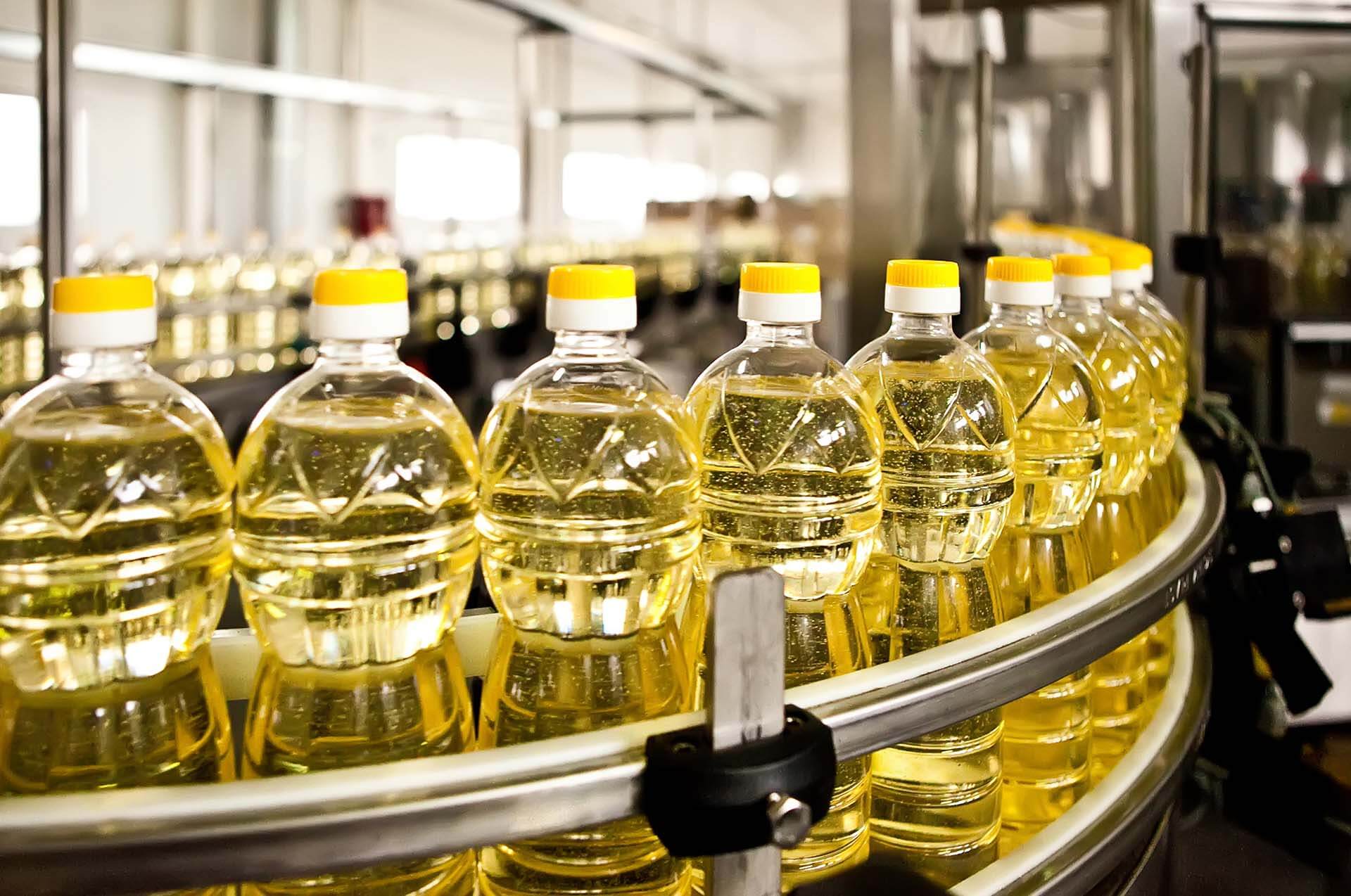SGS DIGICOMPLY Food Safety Intelligence Hub reveals a concerning trend in the food industry, particularly within the domain of oils. Incidents of Food Fraud have witnessed a staggering 768% surge since 2020, signaling a critical need for heightened security measures to safeguard the Edible Oil Industry's supply chain. This article delves into the current landscape of food fraud within the industry, examining the contributing factors and proposing comprehensive strategies to secure the supply chain.
Understanding the Food Fraud Surge
The surge in food fraud incidents within the Edible Oil Industry can be attributed to various factors, including the complex and global nature of the supply chain. Fraudsters exploit vulnerabilities at different stages, from production to distribution, making it crucial for stakeholders to identify and address weak points. Common fraudulent practices include adulteration, mislabeling, and the use of unauthorized additives, jeopardizing both consumer safety and the reputation of brands.
Examining Contributing Factors
To understand the dynamics of the surge in food fraud, it's essential to identify contributing factors. The industry's rapid growth, global supply chains, and the increasing demand for edible oils have created opportunities for fraudulent activities. Lack of standardized traceability measures and insufficient regulatory oversight also play significant roles in the vulnerability of the supply chain.
Securing the Supply Chain
-
Enhanced Traceability Systems: Implementing advanced traceability systems, such as blockchain technology, can provide transparency throughout the supply chain. This ensures that each step of the production and distribution process is traceable, enabling quick detection of any anomalies.
-
Advanced Testing Technologies: Incorporating state-of-the-art testing methodologies, such as nuclear magnetic resonance (NMR) spectroscopy and mass spectrometry, can enhance the ability to detect adulteration and ensure the authenticity of edible oils.
-
Collaborative Industry Efforts: Industry stakeholders, including producers, regulators, and retailers, must collaborate to share information on emerging threats and known fraudulent practices. This collective approach can strengthen the overall resilience of the supply chain.
-
Regulatory Compliance and Enforcement: Governments and regulatory bodies play a crucial role in preventing food fraud. Strict enforcement of regulations, regular audits, and severe penalties for non-compliance act as deterrents to fraudulent activities.
-
Consumer Education: Educating consumers about the importance of purchasing from reputable sources and understanding product labels empowers them to make informed choices. Increased consumer awareness acts as an additional layer of defense against food fraud.
SGS Digicomply insights: The number of incidents grew by 768%
SGS DIGICOMPLY Food Safety Intelligence Hub reveals a concerning trend in the food industry, particularly within the domain of oils, as incidents of Food Fraud have witnessed a staggering 768% surge since 2020. These findings underscore the imperative for heightened vigilance and advanced measures in safeguarding the integrity of the oil supply chain. Addressing this substantial spike in fraudulent activities demands a collaborative effort from industry stakeholders. Strengthening control points, implementing advanced testing methodologies, and fostering transparency are paramount to fortify the defense against unscrupulous practices, ensuring the safety and authenticity of oil products within the market.

SGS Digicomply's Food Safety Intelligence Hub utilizes advanced AI technology, combining thousands of data sources to enable comprehensive yet targeted screening of food safety data and key insights. These insights are then contextualized with real-time laboratory data, allowing for the identification and connection of previously unseen emerging risks.
Feel free to get in touch now to learn about implementing the Food Safety Intelligence Hub for your company.
In conclusion, tackling the surge in food fraud within the Edible Oil Industry necessitates immediate action and forward-thinking strategies. Integrating advanced technologies, fostering collaboration, and empowering consumers are vital for building a resilient future. The industry must adapt to emerging risks through innovation and partnerships. A vigilant and informed consumer base adds a crucial layer of defense against food fraud. Securing the supply chain demands a strategic, collaborative effort for a resilient and secure future.





.webp?width=1644&height=1254&name=Food%20Safety%20Dashboard%201%20(1).webp)
